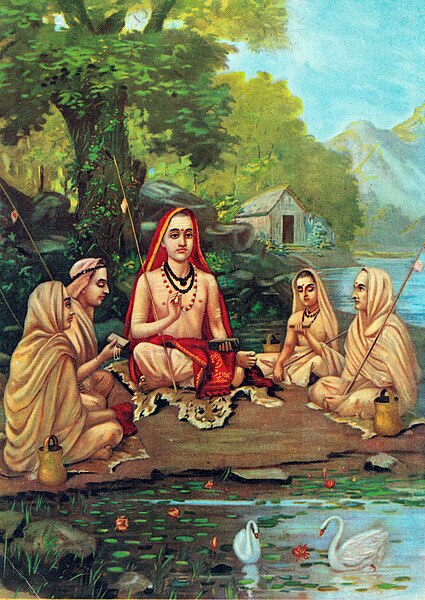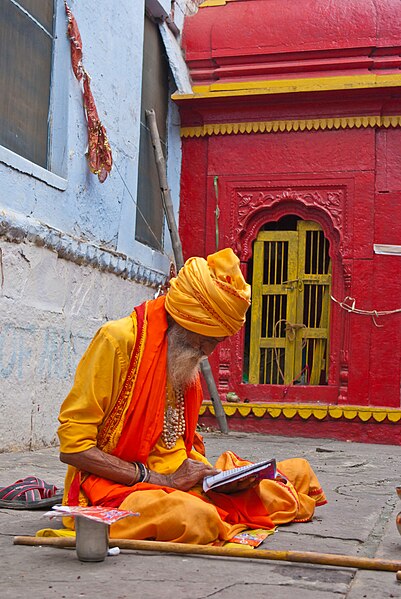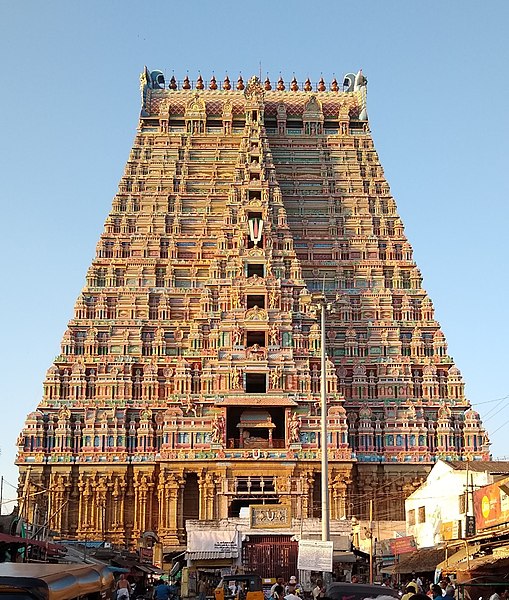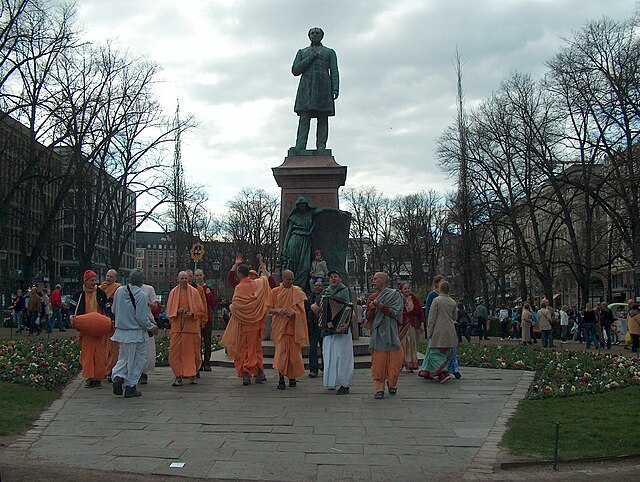Moksha, also called vimoksha, vimukti, and mukti, is a term in Hinduism, Buddhism, Jainism and Sikhism for various forms of emancipation, liberation, nirvana, or release. In its soteriological and eschatological senses, it refers to freedom from saṃsāra, the cycle of death and rebirth. In its epistemological and psychological senses, moksha is freedom from ignorance: self-realization, self-actualization and self-knowledge.
Gajendra Moksha (pictured) is a symbolic tale in Vaishnavism. The elephant Gajendra enters a lake where a crocodile (Huhu) clutches his leg and becomes his suffering. Despite his pain, Gajendra constantly remembers Vishnu, who then liberates him. Gajendra symbolically represents human beings, Huhu represents sins, and the lake is saṃsāra.
Jñāna yoga
Bhakti yoga
Rāja marga
Hinduism is an Indian religion or dharma, a religious and universal order by which its followers abide. The word Hindu is an exonym, and while Hinduism has been called the oldest religion in the world, it has also been described as sanātana dharma, a modern usage, based on the belief that its origins lie beyond human history, as revealed in the Hindu texts. Another endonym for Hinduism is Vaidika dharma.
Srirangam Ranganathaswamy Temple dedicated to the Hindu deity Vishnu is said to be worshiped by Ikshvaku and the descendants of (Ikshvaku Vamsam).
Hindus in Ghana celebrating Ganesh Chaturti
Swami Vivekananda was a key figure in introducing Vedanta and Yoga in Europe and the United States, raising interfaith awareness and making Hinduism a world religion.
The Hare Krishna group at the Esplanadi Park in Helsinki, Finland








